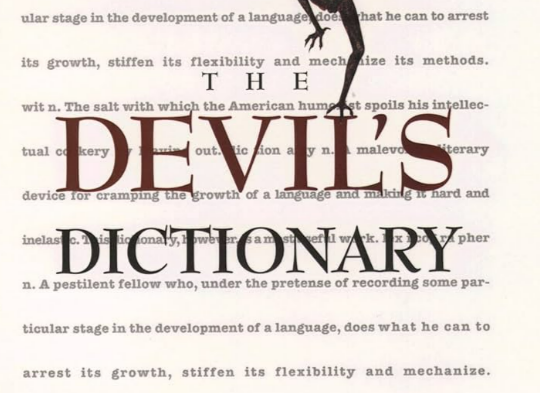Chapter Q
byChapter Q opens with Bierce’s definition of Queen, who he presents as a monarch not limited to figurehead or consort. Her presence is shown to possess influence both active and implied, shaping outcomes whether she reigns directly or supports from behind the throne. Bierce suggests that while kings may rule, queens maneuver—often more subtly, and sometimes with greater lasting impact. This nuanced depiction challenges the assumption that power is loud, offering instead the idea that it is often wielded quietly. Through this lens, monarchy becomes less about crown and more about cunning.
He follows with Quill, humorously labeled as an archaic “instrument of torture,” once used by those deemed intellectually lacking. Bierce’s satire stretches further by mocking its modern replacement, the steel pen, which he says continues to be used by similarly unwise individuals. The implication is that writing, though a powerful tool, is often misused by those who seek appearance over thought. Words become not vehicles of wisdom but ornaments of pretension. In this way, Bierce dissects the gulf between literacy and intelligence.
The image of a Quiver—normally associated with arrows—is repurposed as a metaphor for rhetorical tools carried by politicians and lawyers. Bierce claims they draw not weapons, but witticisms and misleading logic. He uses a playful verse from Oglum P. Boomp to underscore how language in legal and political arenas often serves to confuse rather than clarify. These arrows of argument, he implies, rarely strike truth—they merely hit their intended audience with performance. Here, satire takes aim at the legalese that cloaks self-interest in the guise of duty.
Quixotic is next, defined through its namesake, the tragicomic Don Quixote. Bierce notes that many admire the spirit but fail to pronounce the name, creating a subtle critique of superficial understanding. He exposes how romantic idealism, while praised in literature, is often misunderstood or mocked in practice. His commentary touches on the tension between aspiration and absurdity, pointing out that noble intentions frequently get tangled in impractical execution. As always, Bierce honors the dreamer but ridicules the dream’s dysfunction.
The term Quorum receives one of Bierce’s more pointed critiques. It is described as the minimum number of lawmakers needed to pretend a decision is legitimate. Bierce’s definition highlights the farcical nature of political systems, where the presence of a few allows the passage of laws affecting many. Through sarcasm, he questions whether governance is about representation or convenience. His implication is that modern policy often starts with a shrug rather than a consensus.
In Quotation, Bierce turns to the habits of those who borrow words to appear wise. He defines it as a flawed attempt to share someone else’s insight—often incorrectly. With help from a mock-verse by Stumpo Gaker, he humorously shows how repetition rarely improves accuracy. Bierce’s critique is not of quoting itself, but of using quotations as shortcuts to depth. The target is superficial scholarship, where memorized lines replace meaningful understanding.
The final entry, Quotient, is framed as a financial trick. Bierce defines it as a calculation of how many times one person’s wealth can be extracted by another, reducing math to a metaphor for exploitation. This clever turn links economics and social commentary, suggesting that relationships are often transactional beneath their surface. His interpretation points to the absurdity of systems that reward cunning over fairness. The concept of balance, in this context, becomes a game of percentages.
Each of these entries reflects Bierce’s mastery of turning language into critique. He doesn’t just define words—he dismantles the assumptions hidden in them. The letter “Q” becomes a gateway to questioning authority, ambition, intellect, and even idealism. Bierce’s work invites readers to look beyond meanings and examine motives. With surgical wit, he continues his mission of exposing the contradictions that shape the world we pretend to understand.

